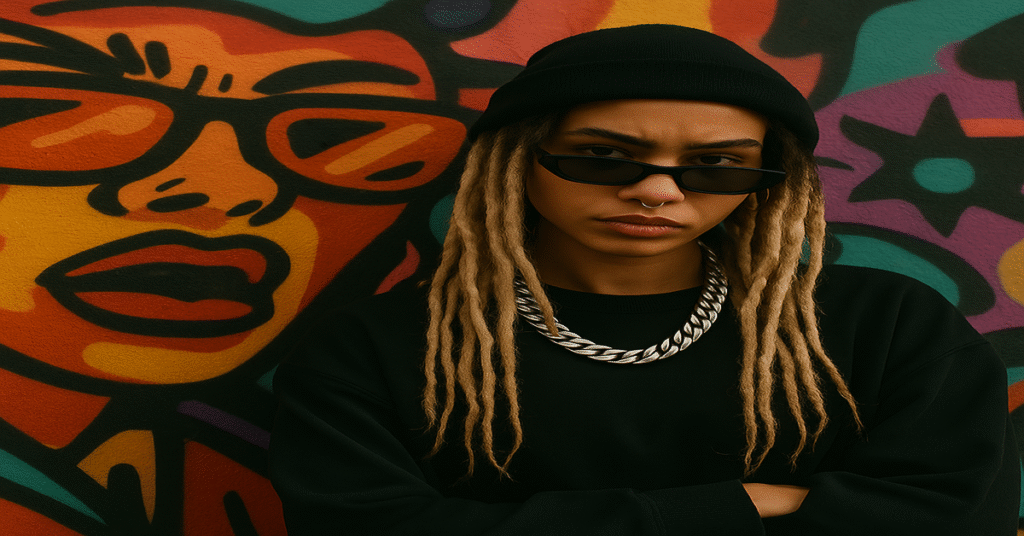The term “Ciulioneros” may be unfamiliar to many, yet its roots run deep in contemporary cultural currents. It evokes imagery, emotion, and a powerful sense of identity. While not grounded in any one traditional narrative, Ciulioneros has grown to become a conceptual brand, lifestyle, and even movement in various creative communities.
In this detailed exploration, we’ll unpack the layered meanings of Ciulioneros—its origins, symbolic interpretations, cultural relevance, artistic impact, and its growing presence in both digital and real-world spaces.
The Origin and Etymology of Ciulioneros
Tracing the Word
“Ciulioneros” is an unconventional term that defies traditional etymology. It appears to be a coined fusion, possibly drawing from multiple linguistic or stylistic influences. While its exact origin is unclear, the phonetic structure suggests Latin or Romance language inspiration—blending something rough, poetic, and rebellious all at once.
From Slang to Symbol
What may have begun as playful slang or an inside phrase among a niche group eventually gained traction. Social circles, especially among musicians, underground artists, and creative youth, began using “Ciulioneros” as a badge of cultural uniqueness. Its abstract nature allowed for fluid identity—each person could define it for themselves.
Cultural Interpretations of Ciulioneros
A Lifestyle and Mentality
To some, being a Ciulionero is about embracing a non-conforming lifestyle. It’s a mentality that champions:
- Independent thinking
- Creative rebellion
- Authenticity over popularity
- Cultural cross-pollination
It’s often adopted by street artists, genre-bending musicians, experimental designers, and hybrid-content creators.
Artistic Identity
For many creatives, Ciulioneros stands for breaking boundaries. It represents:
- Genreless creativity
- DIY artistry
- Anti-corporate art values
- Collaborative over competitive spirit
The Ciulionero is not just an artist—they’re a shapeshifter, drawing from digital, analog, historical, and futuristic influences all at once.
The Rise of Ciulioneros in Pop and Underground Culture
Digital Platforms and Subcultures
Ciulioneros gained major traction on social platforms like TikTok, Instagram Reels, and digital art communities. Tagging work as #Ciulioneros became an act of classification for things that didn’t fit into neat categories.
This word became associated with:
- Experimental visual content
- Glitched music mashups
- Street-style fashion with vintage flair
- Alternative philosophy memes
The underground welcomed it first. Now, digital influencers, visual artists, and even brand marketers are taking note.
Music and the Ciulionero Sound
While not tied to a single genre, the Ciulioneros aesthetic in music often includes:
- Ambient beats layered with aggressive rhythms
- Lo-fi with sudden switches into synthwave or punk
- Nontraditional song structures
- Strong emotional undertones, often nostalgic or chaotic
Some creators release entire EPs or mixtapes under the “Ciulioneros” tag to emphasize their commitment to raw, uncategorized sound.
Ciulioneros in Visual and Street Art
Urban Expression
Street art has long been a medium of rebellion and cultural commentary—Ciulioneros fits this mold perfectly. In cities, murals tagged with the term appear with themes like:
- Anti-capitalist commentary
- Homage to forgotten cultures
- Visual remixes of religious iconography
- Sci-fi-infused human portraits
The style tends to mix spray, digital paste-ups, collage, and retro aesthetics. It’s bold, unrefined, and immersive.
Digital Collage & AR Integration
With the digital shift, many Ciulioneros artists turned to online platforms to build galleries. Some have even incorporated AR (augmented reality), where pointing a phone at a tagged street wall reveals 3D motion art or remixed poetry.
It’s visual rebellion for the connected generation.
Philosophical Layers Behind Ciulioneros
Postmodern Identity
Ciulioneros isn’t just visual or auditory—it’s philosophical. It raises questions about:
- Who gets to define culture?
- Why must we categorize art?
- Can chaos be a medium for truth?
This concept has fascinated thinkers, especially those focused on digital identities, generational trauma, and hybrid cultures.
The Collective vs. The Individual
Ciulioneros often walks the line between personal identity and group belonging. It promotes personal freedom, but often in tightly-knit digital collectives. The paradox is part of the brand:
“Be radically yourself, but be one of us.”
Ciulioneros in Fashion and Design
Unbranded Fashion Statements
Ciulioneros fashion leans heavily into thrift-core, upcycled wear, and mix-matching across eras. Think:
- Oversized vintage coats
- Patchy denim
- DIY screen-printed tees
- Accessory layering (chains, badges, pins)
- Bold clashing colors
Style isn’t about trend—it’s about mood, mood-switch, contradiction, and storytelling through wear.
Designer Appropriations
Recently, fashion labels have started to subtly incorporate Ciulioneros elements. While some see this as tribute, purists argue it’s a dilution. Nevertheless, high fashion has borrowed:
- Collage jackets
- Deconstructed tailoring
- Layered absurdism
- Graffiti-style typography in prints
These elements are seen on runways labeled as “neo-street” or “post-identity” wear.
Ciulioneros and Technology
NFTs and Decentralized Creativity
Many Ciulioneros creators have embraced NFTs—not for profit, but for digital permanence and ownership. These digital artifacts include:
- One-of-one soundtracks
- AR street art capsules
- Generative poetry
- Interactive visual loops
Blockchain becomes not just a transaction layer but a time capsule of creative rebellion.
AI Collaborations
Another frontier is AI-assisted content. Ciulioneros creators use tools like text-to-image generators and algorithmic music samplers. They remix the outputs to question authorship and blur human-machine lines.
Is AI part of the rebellion or part of the system? That debate thrives within the Ciulioneros circles.
Educational Impact and Cultural Dialogue
University Lectures and Research
Academic institutions, especially those focused on media studies and sociology, have begun dissecting Ciulioneros culture. Topics explored include:
- Digital folklore
- Memetic language
- Evolving remix culture
- Aesthetic protest
Ciulioneros is discussed not as a trend, but as a form of grassroots cultural literacy.
Youth Empowerment
Youth collectives in global cities use Ciulioneros as a banner for after-school art programs and social initiatives. Through zines, street exhibitions, and digital showcases, young artists create space where mainstream systems don’t reach.
It’s a tool for voice and visibility.
The Ciulioneros Movement: Organized or Organic?
Online Communities and Forums
Reddit threads, Discord servers, and private collectives have grown around the word. Despite their anonymity, they share:
- Creative prompts
- Feedback exchanges
- Drop dates for Ciulioneros-themed art
- Group showcases
These spaces act as incubators, balancing anonymity with creative freedom.
Does Ciulioneros Have Leaders?
No single person owns the term. That’s intentional. Leadership is rotational, project-based, and often uncredited. Ciulioneros favors movements over institutions.
Anyone can be a Ciulionero. All you need is the will to create against the grain.
Conclusion
Ciulioneros represents more than a word—it’s a living, breathing reflection of our time. It’s the creative restlessness of a generation that grew up between physical and digital worlds, raised on memes and mixtapes, questioning everything and remixing anything.
From its uncertain etymology to its undeniable cultural presence, Ciulioneros invites everyone to be both artist and observer. It encourages chaos, questions systems, and uplifts identity. In a world chasing uniformity, Ciulioneros celebrates disorder, rawness, and the courage to not fit in.
The beauty of Ciulioneros is that it doesn’t ask for permission. It only asks: What are you making today that didn’t exist yesterday?
FAQs
1. What does the term “Ciulioneros” mean?
“Ciulioneros” is a modern cultural term symbolizing creative rebellion, identity exploration, and hybrid expression across music, art, fashion, and digital culture.
2. Is Ciulioneros a person, a brand, or a movement?
It’s primarily a cultural movement and creative identity. While not tied to a specific individual or company, it is embraced by various artists and communities.
3. Where is Ciulioneros most popular?
Ciulioneros has gained popularity in online creative communities, especially among Gen Z and millennial artists, musicians, and designers in urban and digital spaces.
4. How can someone become part of the Ciulioneros movement?
There’s no official membership. Anyone creating original, genre-defying work and contributing to the cultural dialogue in nontraditional ways is considered a Ciulionero.
5. Is Ciulioneros associated with a particular music or art style?
No. It embraces fluidity and remix culture. However, Ciulioneros projects often combine multiple genres and mediums to defy traditional categorization.
6. Are there Ciulioneros events or exhibitions?
Yes. While decentralized, Ciulioneros-inspired pop-ups, digital showcases, NFT drops, and underground festivals have been organized by community members globally.







